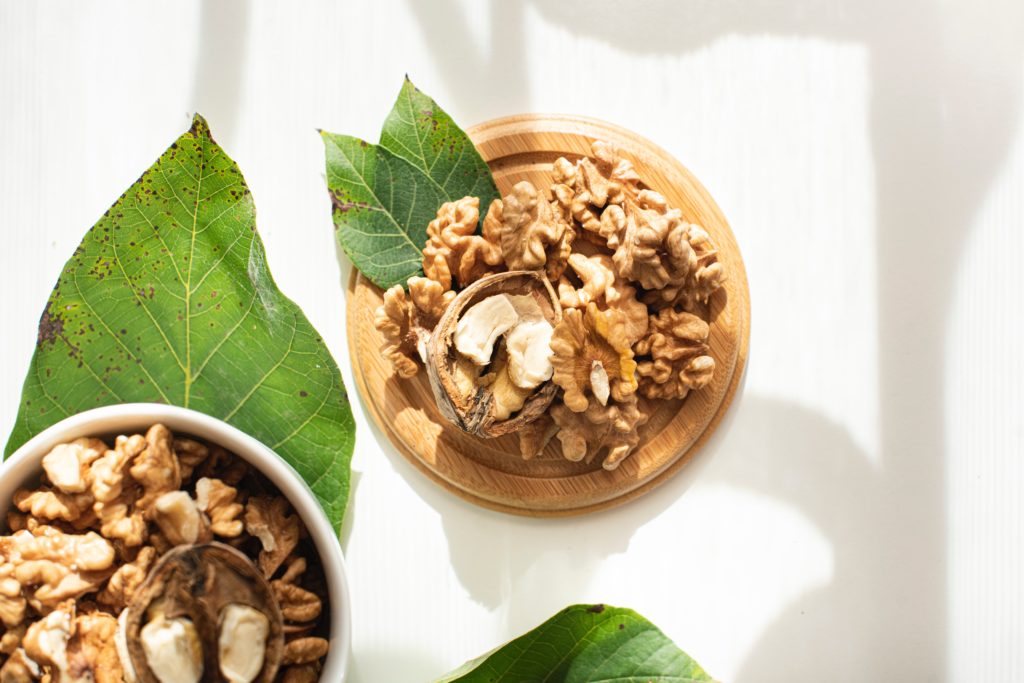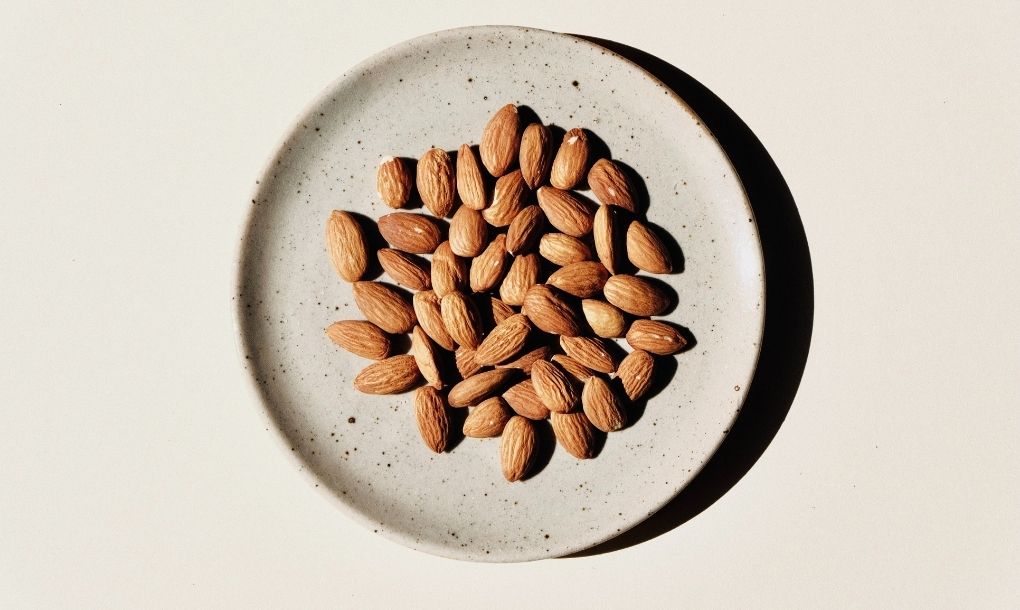Date of the last update: 25.04.2022
Nearly everyone experiences problems with memory and concentration. These are mostly caused by a bad lifestyle, including a diet rich in processed food, animal fats and sugar. Other factors that have a negative impact on our brainpower are lack of physical activity, insufficient sleep and stress. But there are certain foods that boost memory and concentration which can keep you sharp and focused.
Table of Contents:
- Foods for the brain – complex carbohydrates and fats
- Foods for memory and concentration – vitamins and minerals
- A diet rich in antioxidants
- Herbs and spices for better memory and concentration
You can read this article in 3 minutes.
Foods for the brain – complex carbohydrates and fats
Food triggers the brain’s intellectual functions, stimulates the production of enzymes, hormones and neurotransmitters that play an important role in memory and recall processes.
The energy required for proper brain functions comes from complex carbohydrates included in the daily diet. Supply them by reaching for wholemeal bread and pasta, brown rice and bran. Sea fish eaten 2–3 times a week (mackerel, salmon, sardines), cold-pressed oils (e.g. linseed and rapeseed oils) and nuts provide the body with essential omega-3 and omega-6 fatty acids.
Foods for memory and concentration – vitamins and minerals
Brain function relies on vitamins and minerals supplied with food. Include products rich in iron in your diet, as iron is necessary to transport oxygen to the brain. The main sources of iron are meat (including innards), eggs, green vegetables and pulses. Remember about vitamins, especially A, C and E. Magnesium, found in fruit and vegetables (spinach, kale, parsley) as well as whole grains (buckwheat), are other excellent memory and concentration boosters. The diet should be rich in products that contain lecithin, such as egg yolk, nuts, sunflower seeds, soya and liver.

A diet rich in antioxidants
Antioxidants also play a very important role as they protect the body from the harmful effects of free radicals. Scientific studies confirm that people who eat foods rich in antioxidants, such as flavonoids and carotenoids, show better concentration. A lower cognitive decline over a period of several years was also observed. So it is worth consuming, among other things:
- berries (especially dark berries such as blueberries, chokeberries, blackcurrants)
- peppers
- rosehips
- pumpkin
- legumes
- nuts.
Antioxidants are found in many products, mainly vegetables, fruit, nuts, seeds and wholegrains. All you need to make your brain work properly is to adequately compose your menu.

Herbs and spices for better memory and concentration
Brain function can be supported by herbs and spices. Thanks to their valuable properties they have a positive influence on memory and concentration. These include:
- Rosemary (Rosmarinus officinalis L.) – this herb contains valuable essential oil and in ancient times it used to be called the herb of memories. Scientific studies confirm that essential oils as well as fresh rosemary improve memory. According to scientists, you can increase you memory by up to 75% by just smelling rosemary! The herb also enhances the treatment of Alzheimer’s disease and dementia, prevents depression and reduces effects of stress, thus providing a clear mind.
- Common basil (Ocimum basilicum L.) contains essential oils, tannins, phenolic compounds, saponins, anthocyanins, flavonoids, minerals, as well as vitamin C, E and rutin. Flavonoids, tannins and terpenes improve memory and concentration. Chewing basil leaves or inhaling the aroma of leaves crushed in fingers reduces hyperactivity and alleviates stress.
- Peppermint (Mentha piperita L.) is a plant with a characteristic smell. Its leaves contain tannins, flavonoids, phenolic acids, essential oils (menthol), triterpenes, proteins, carbohydrates, vitamins A and B3 and minerals: calcium, phosphorus, magnesium and iron. Scientific research confirms that the wonderful smell of mint enhances memory and concentration. Mint tea stimulates, increases attention and strengthens working and long-term memory.
- Turmeric (Curcuma longa) contains starch, proteins, fats, calcium, iron, potassium, sodium and vitamins: B1, B2, B3 and C. Studies have confirmed that turmeric is beneficial for your brain. Scientists claim that people who are predisposed to memory loss can improve their short-term memory by consuming one gram of turmeric every day. In addition, curcumin – the compound found in turmeric, stimulates the multiplication and differentiation of brain nerve cells.
Explore more: Food and mood. How does diet affect our mental health?
A diet rich in complex carbohydrates, healthy fats, vitamins, minerals and antioxidants is a great way to boost your memory and concentration.
Check out also: How to increase libido? Diet can come to help
Sources:
Ciborowska H., Rudnicka A., Dietetyka. Żywienie zdrowego i chorego człowieka, PZWL, Warszawa 2014.
Olejnik A., Rozmaryn – roślina zielarska o potencjale terapeutycznym, „Postępy Fitoterapii” 2010, nr 2;
M. Kania, J. Baraniak, Właściwości lecznicze roślin przyprawowych na przykładzie ostryżu długiego, „Postępy Fitoterapii” 2015, no 2;
I. Mystkowska, K. Zarzecka, A. Baranowska, M. Gugala, Mięta pieprzowa (Mentha piperita L.) – roślina zielarska o różnorodnych właściwościach biologicznych i leczniczych, „Herbalism”, 2016, no 1;
PAP http://naukawpolsce.pap.pl/aktualnosci/news,398035,mieta-i-rozmaryn-na-lepsza-pamiec.html
PAP http://naukawpolsce.pap.pl/aktualnosci/news,398035,mieta-i-rozmaryn-na-lepsza-pamiec.html

